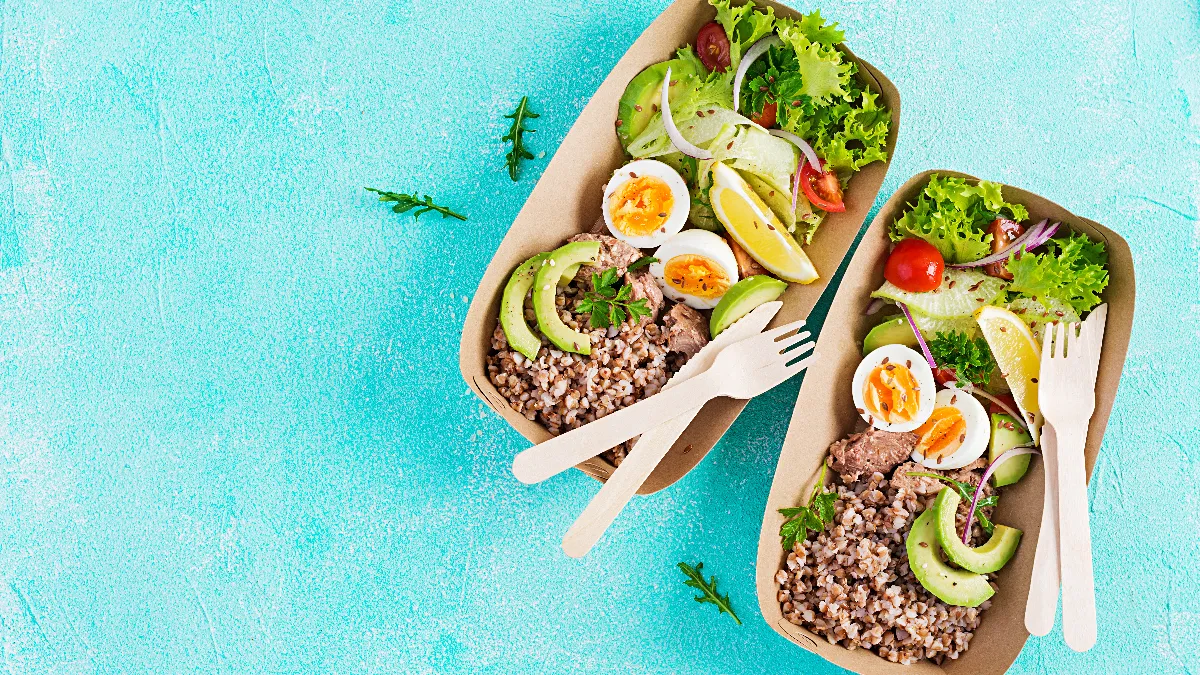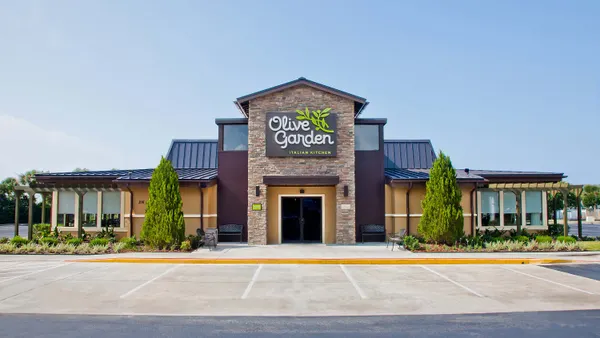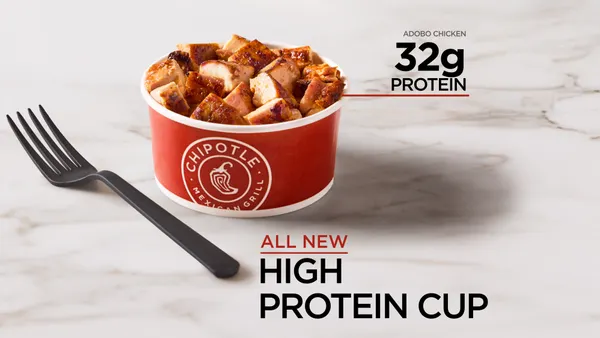Dive Brief:
- Forty-three percent of diners are willing to pay more for restaurant takeout that prioritize sustainability efforts, according to Deliverect research emailed to Restaurant Dive. Fifty-six percent of diners want restaurants to be more transparent about their eco-friendly efforts.
- Although the majority of consumers (65%) believe sustainable eating is more expensive, 47% would consider changing what they order from the menu to be more sustainable, per the study.
- Diners are especially concerned with food waste and packaging. Seventy-three percent of consumers want accurate portion sizes to avoid waste, while 68% believe restaurants should have processes in place to avoid waste, Deliverect finds. Most consumers (54%) prefer to order from restaurants that don't use excess packaging for delivery, while 56% would show preference to a restaurant that uses eco-friendly packaging.
Dive Insight:
Consumer concern about sustainability has been growing for some time. That interest has been impacted by sustainability initiatives touted by major restaurant chains such as McDonald's, which have committed to a host of sustainability goals in the past few years.
Consumer desire to make sustainable choices has accelerated since the start of the COVID-19 pandemic, however, as the food production system's inner workings and climate change's role in disease transmission came into focus. Sixty-five percent of global consumers believe climate change should be a priority in the wake of the pandemic, according to Ipsos.
Deliverect's research reflects this growing trend, as it shows consumers not only want to support businesses that prioritize sustainable practices, but are also willing to pay more for this. A recent study by Simon-Kucher & Partners shows younger consumers are more actively shifting their purchasing behavior toward sustainable businesses, and that across demographics, 60% of global consumers rate sustainability as an important purchase criterion.
Consumers are actively seeking out more sustainable restaurants, as evidenced by Yelp data that shows searches for "plant-based concepts" jumped by 56% from 2018 to 2021. "EV charging" searches increased an average of 41% each year. The demand led Yelp to add new search tools for eco-friendly restaurants.
Restaurant chains are responding to this shift in consumer mindset by making their in-store offerings more eco-friendly. Starbucks, for instance, is planning to phase out its disposable cups, while Tim Hortons has also relaunched a reusable cup program. Other chains, including McDonald's, Burger King, Wendy's and Chick-fil-A, have started phasing out added PFAS in their packaging, which is a substance that doesn't break down in the environment, while Taco Bell is working toward more recyclable packaging.
Chipotle recently launched a test that monitors RFID tags to improve visibility into its supply chain and, potentially, reduce waste. Notably, food waste reduction efforts are not only a move to win over increasingly eco-conscious consumers, but can also help operators as food costs hover near 40-year highs.
Sustainability commitments by major chains are stretching beyond packaging and food waste commitments to improve energy consumption, too. Yum Brands, for instance, pledged to move more than 1,000 restaurants to renewable energy by the end of 2021. Panera now discloses how carbon-intensive each menu item is, and CEO Niren Chaudhary told the New York Times that nearly 30% of all greenhouse gas emission comes from food, adding "we contribute a lot to the problem ... so therefore we have to do something about it."









